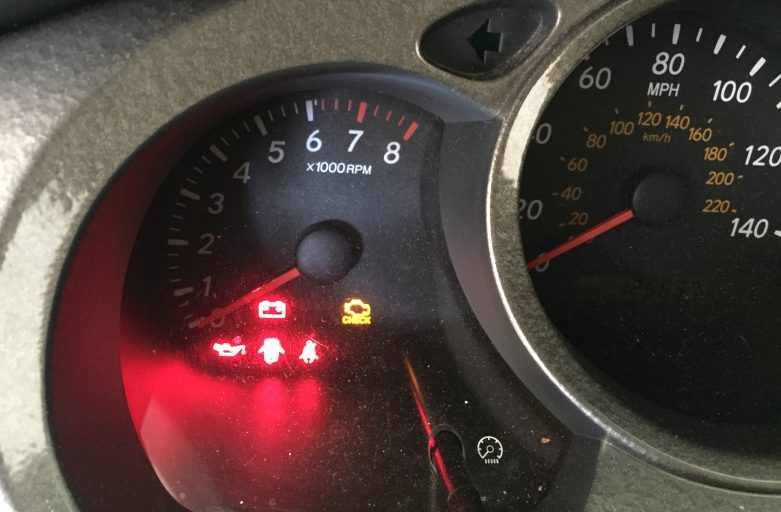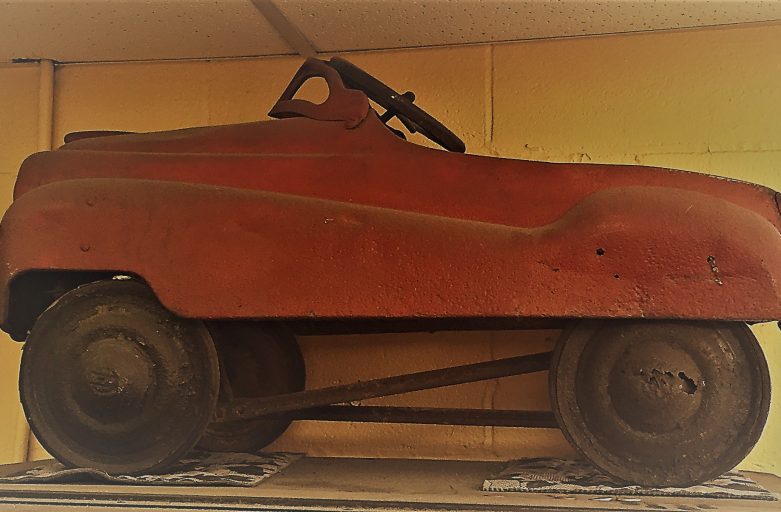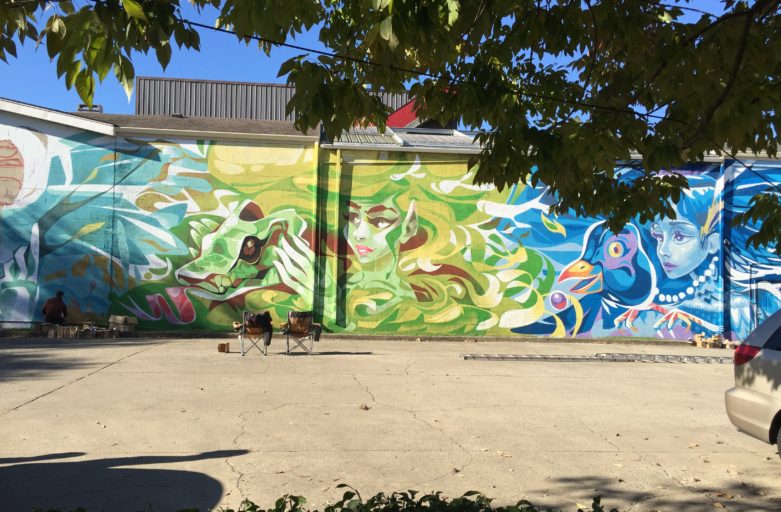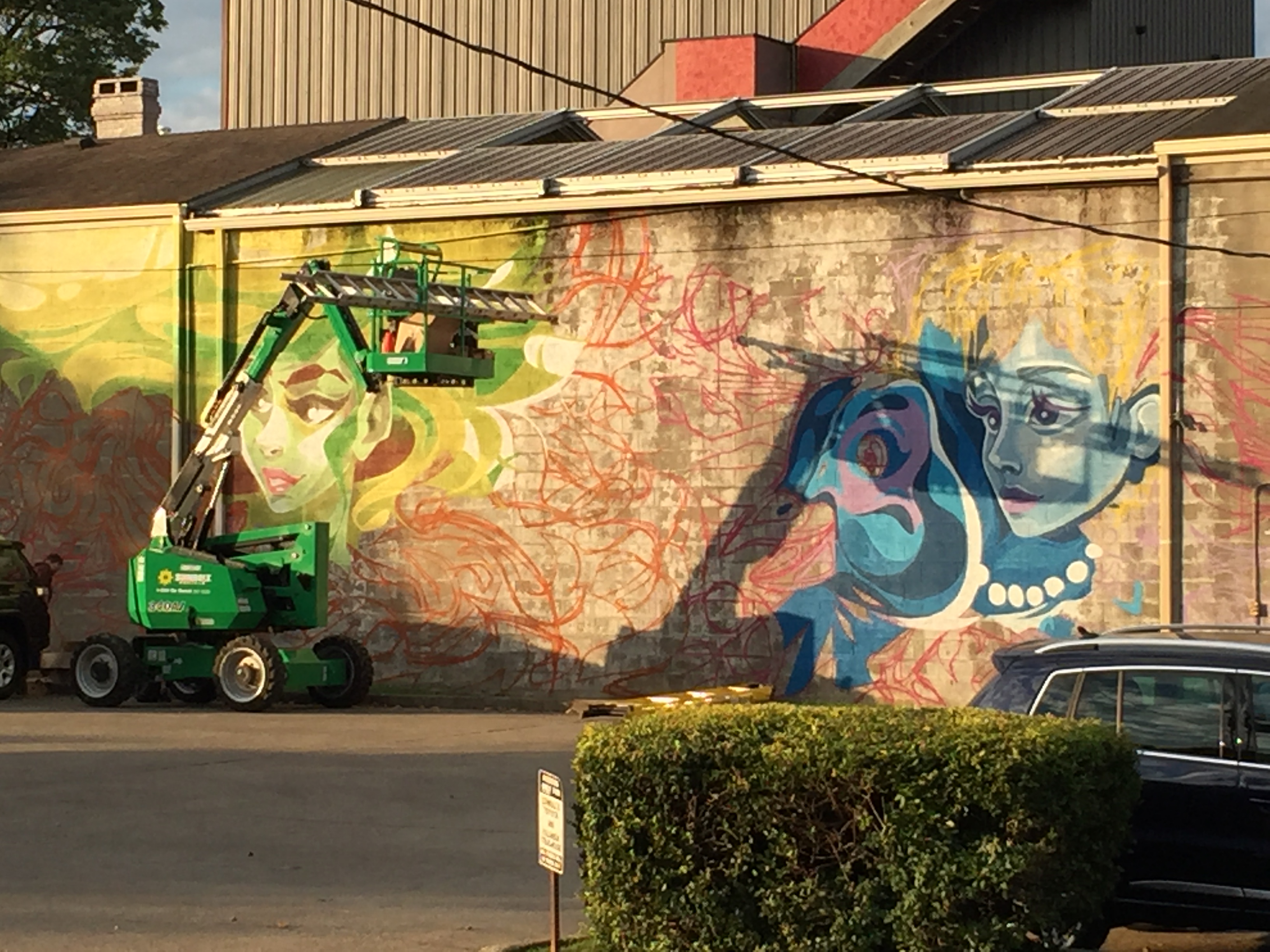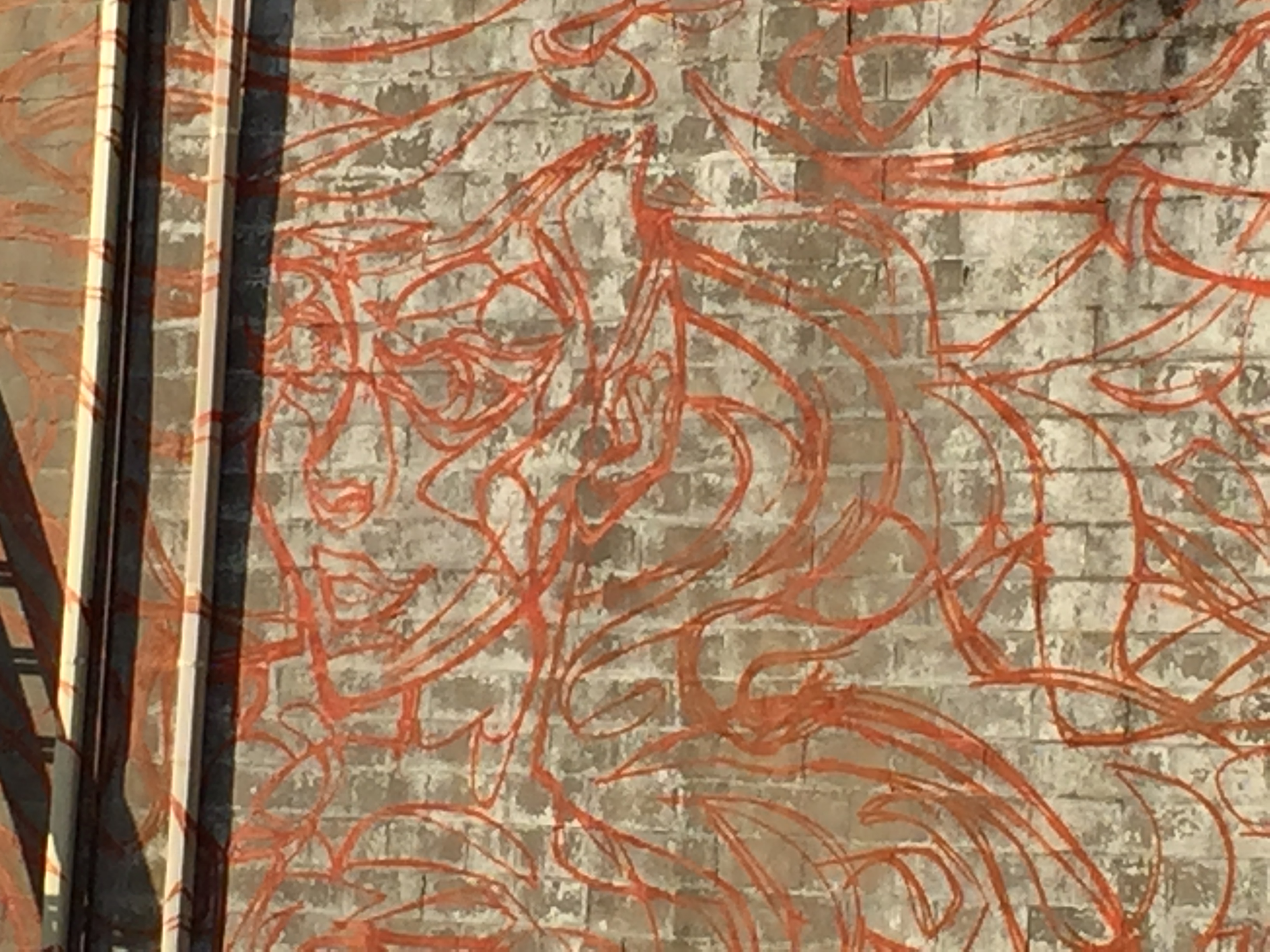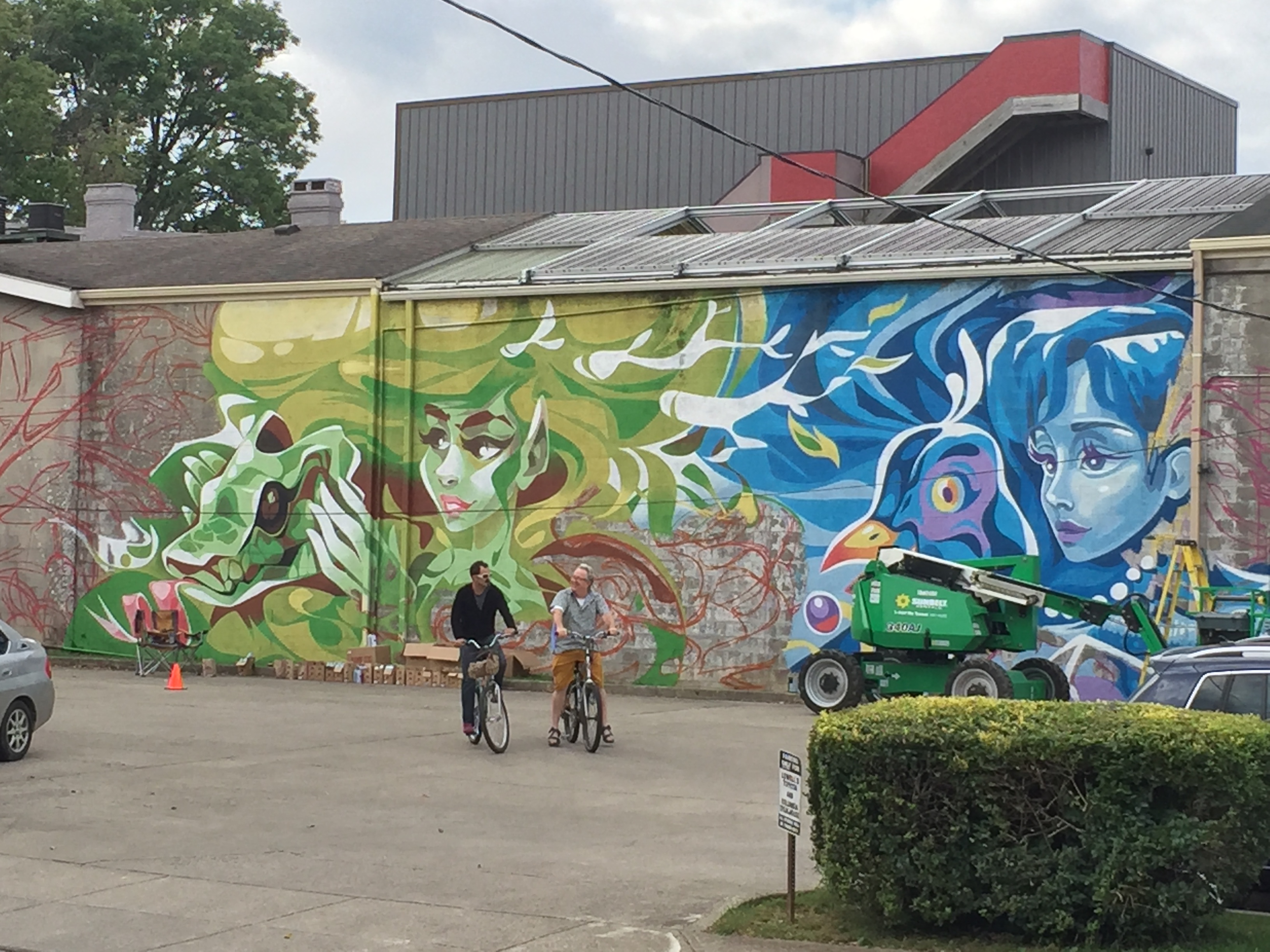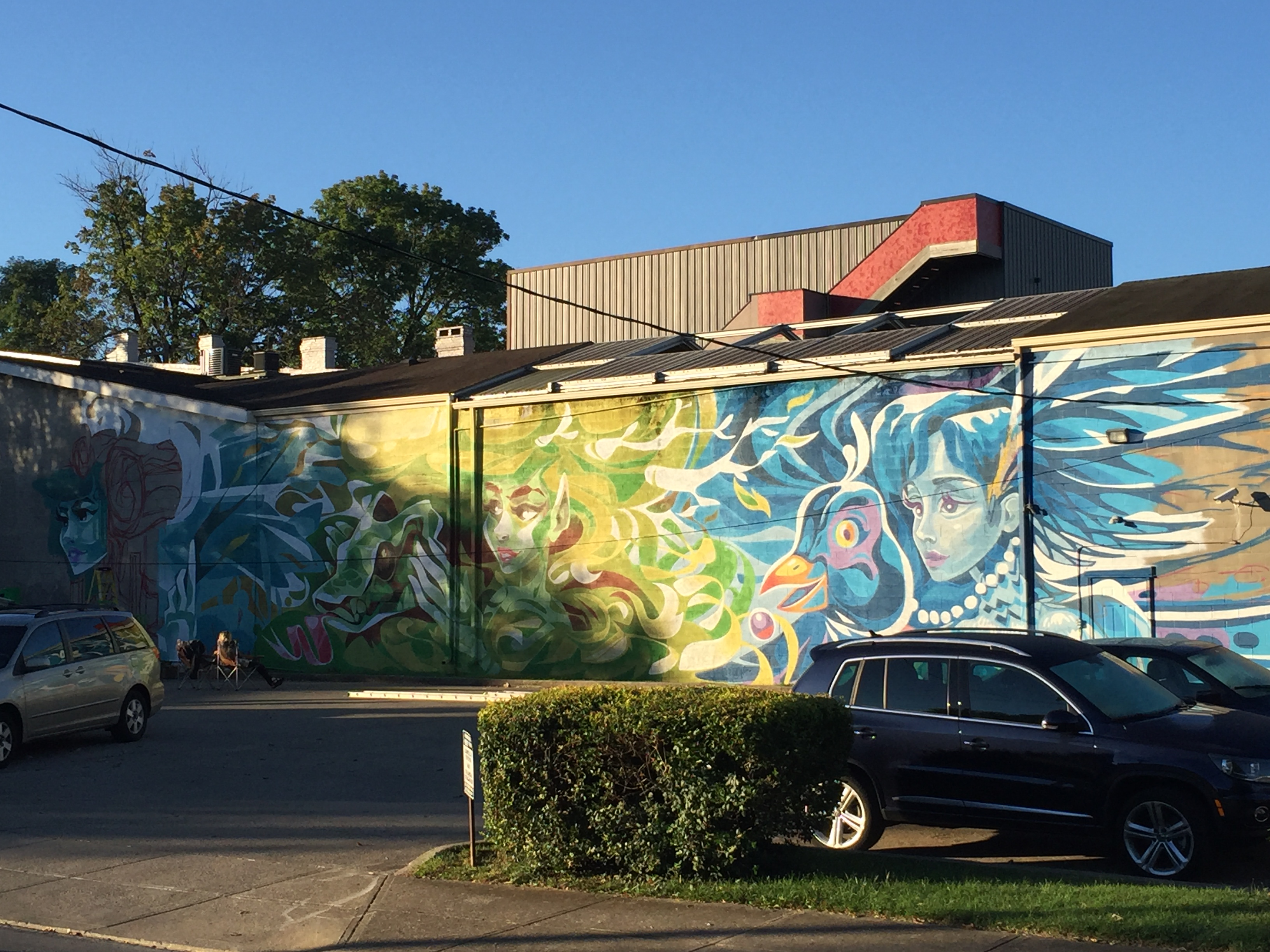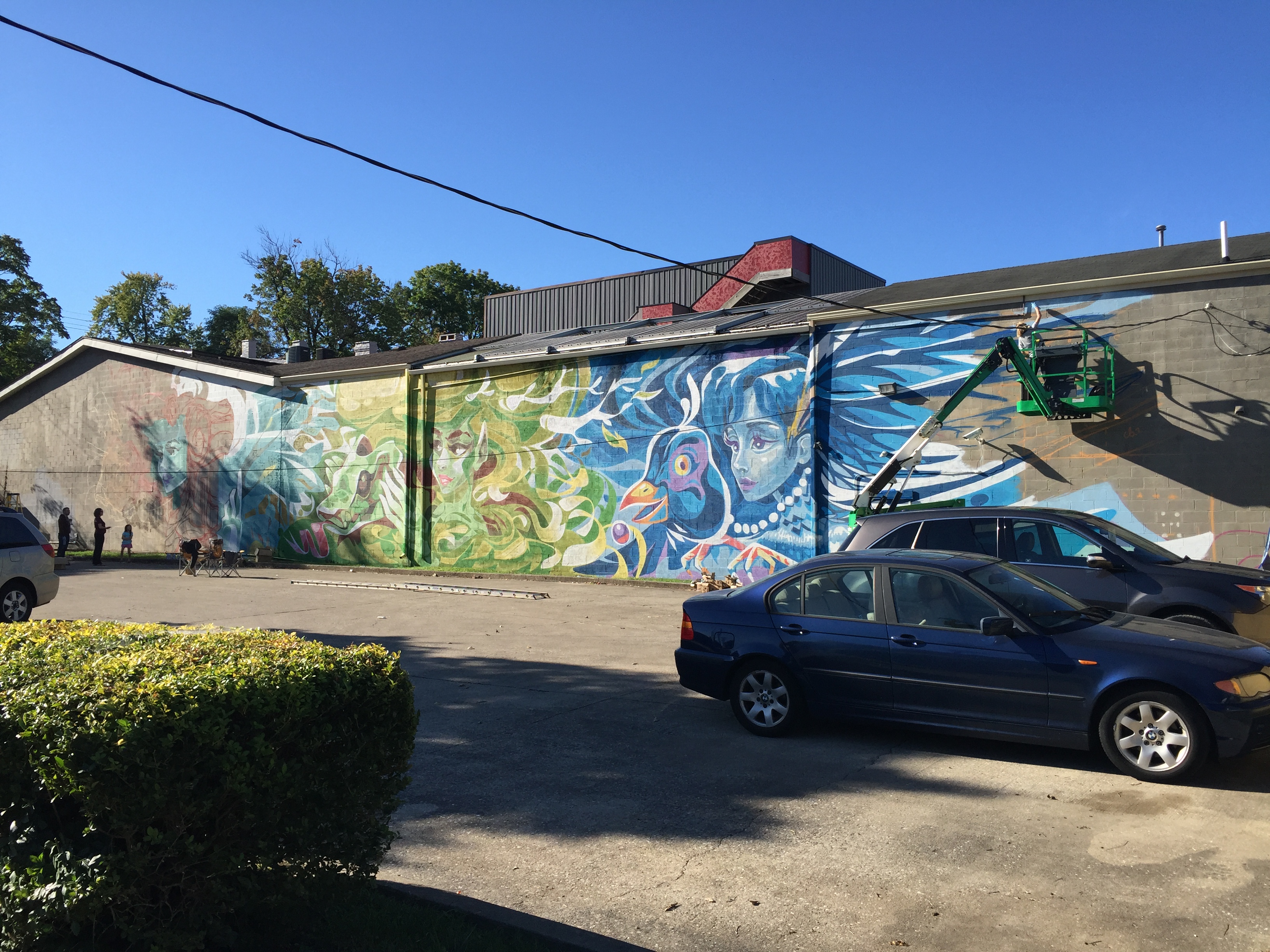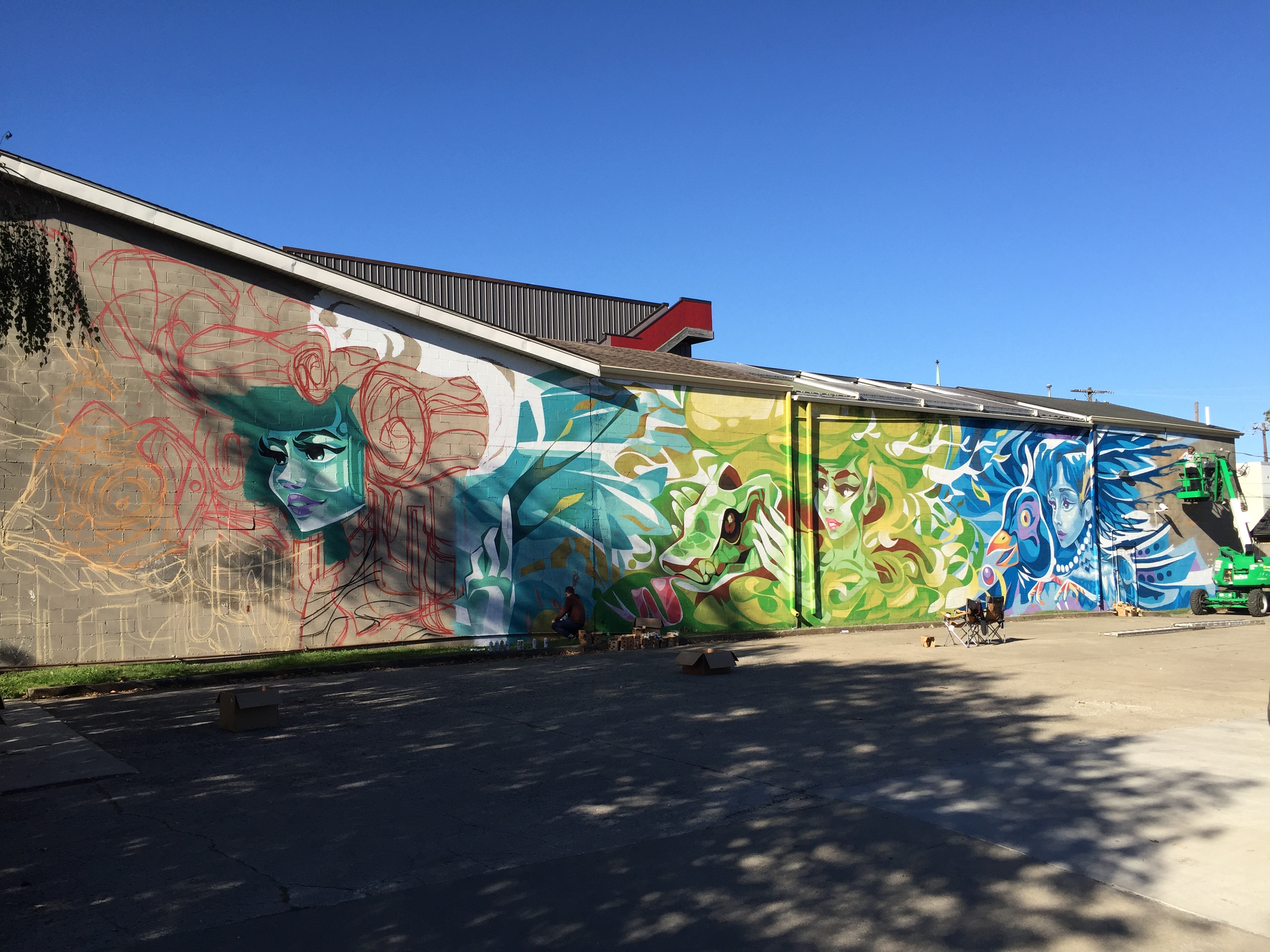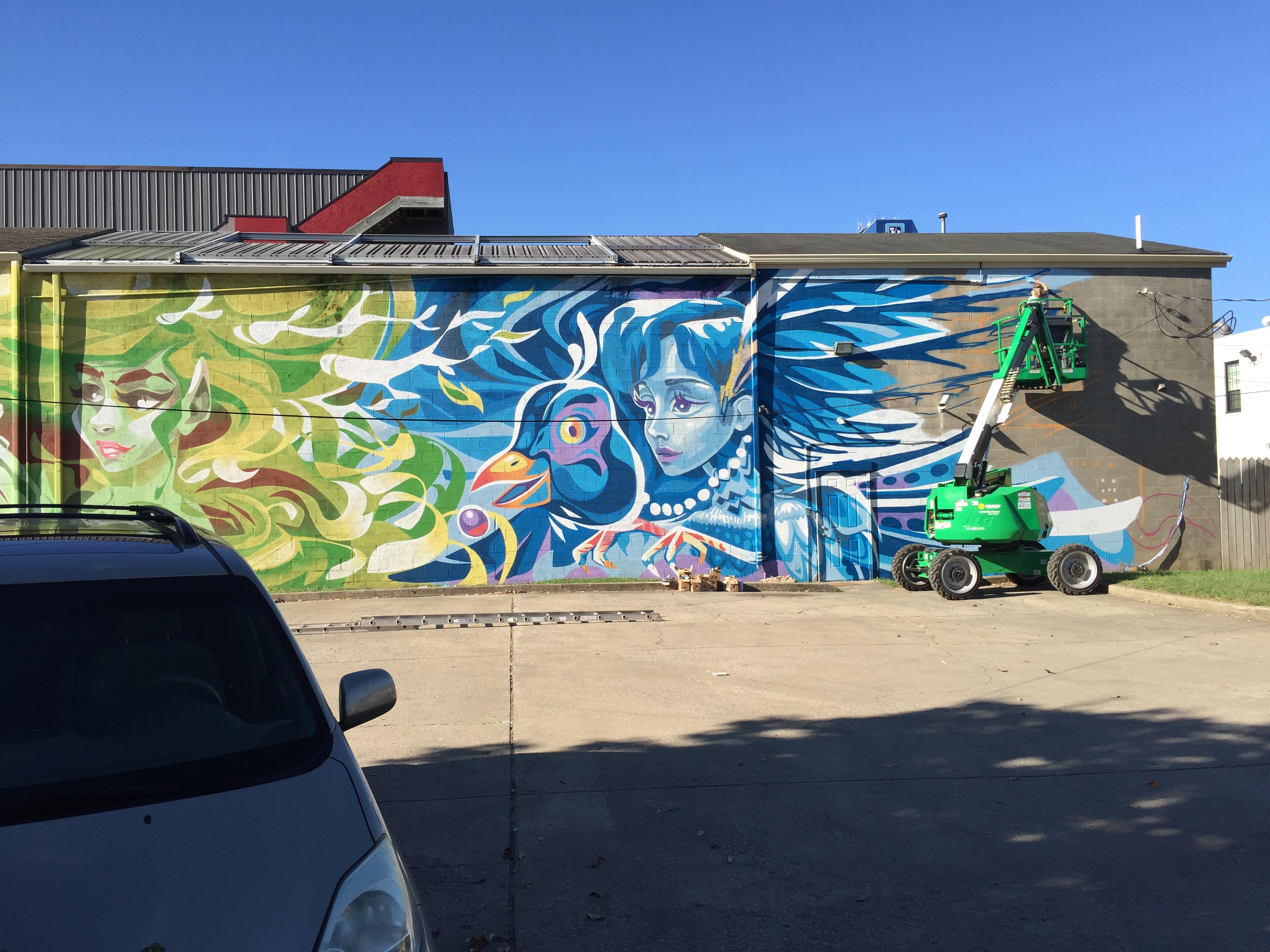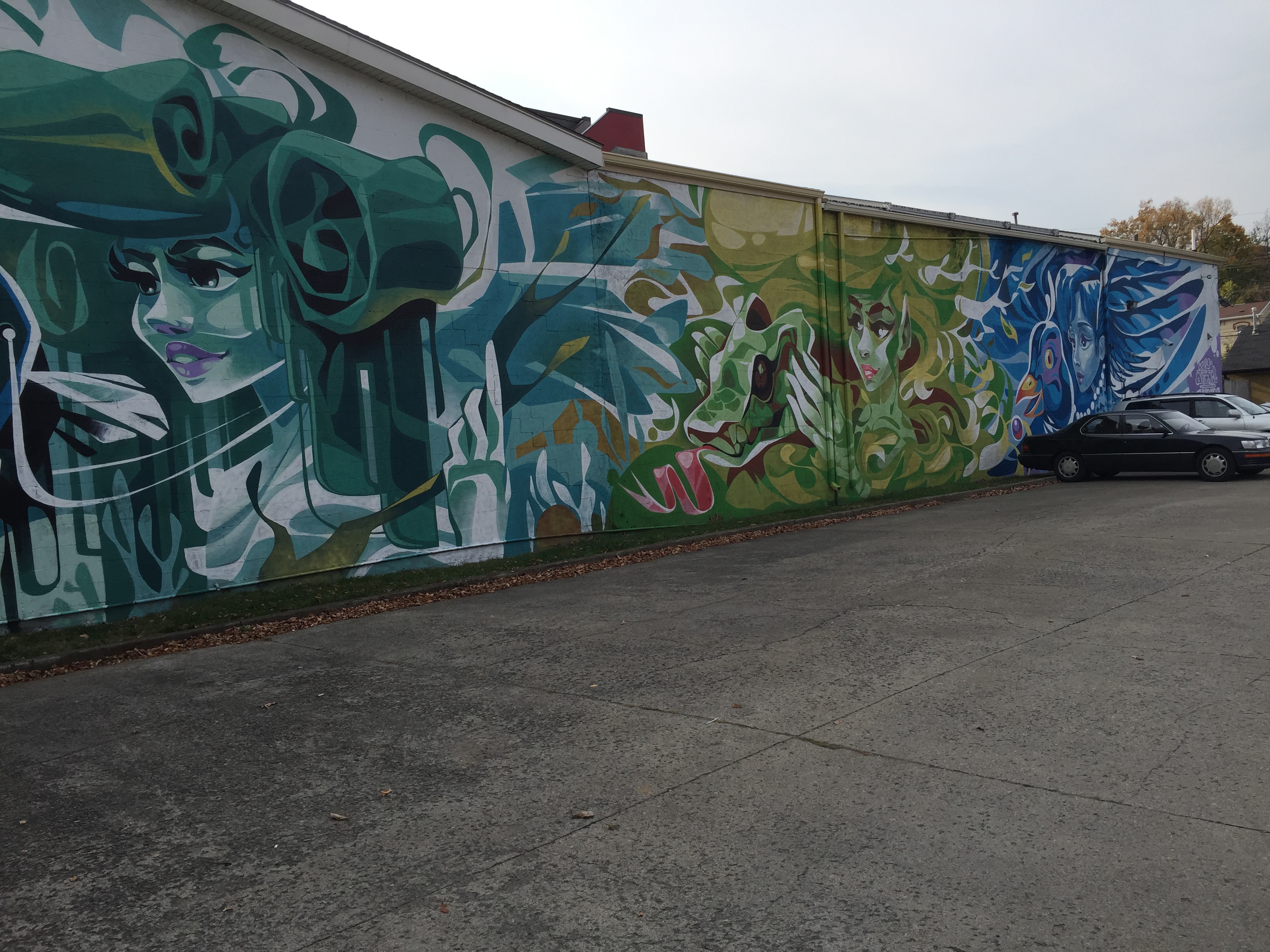Suddenly finding a dash warning light can create a lot of anxiety while driving. What does that light mean? Can I still drive? And how much is this going to cost me?
We know that those lights can be scary, and we’re ready to help you figure out what your particular warning light means.
maintenance required
The good news is that the light which comes on most frequently – the ‘maintenance required’ or ‘MAINT REQD’ light – is relatively mild.
The maintenance required light simply indicates that you are overdue for an oil change. On most Toyota or Lexus vehicles, it comes on automatically 5,000 miles after your last oil change.
And while oil changes are your most important regular service, a maintenance required light isn’t usually something which you need to address right now. Simply schedule your next oil change at your earliest convenience. When we change your oil, we’ll reset your maintenance required light, and you should be ready for the road.
more serious lights
While the ‘maintenance required’ light may not be that serious, other dash warning lights should be addressed as soon as possible. Depending on your vehicle, these may include your ‘check engine’, ‘ABS’, ‘VSC’, and / or ‘TRAC’ lights. If any one or combination of these lights comes on for your vehicle, get your vehicle checked out right away.
Unfortunately, these aren’t lights which can be diagnosed over the phone. The underlying problem might cause permanent damage to your vehicle, or it might not be serious at all.
The safest policy is to have us check out your vehicle’s computer to determine the condition that is triggering the light to come on.
checking codes
Using a laptop computer and Toyota’s TechStream software, we will check your vehicle computer for any recorded or pending conditions which could trigger your warning light. The vehicle computer will often store special codes which point us toward the vehicle subsystem which is reporting a problem.
These codes are relatively easy to obtain: we can pull the codes here at lowell’s, or there are a variety of aftermarket devices which can also get them. (If you ever use one of these devices, make sure to preserve all of the details; many devices will clear out the traces of trouble codes and make them difficult to properly diagnose.)
By themselves, these codes don’t tell us very much. They are akin to telling your doctor about a pain in your throat. The pain gives a doctor an idea of where to look next, and what kinds of tests (pulse, blood pressure, body temperature, throat cultures, etc.) might be needed to determine the specific problem behind the symptom. In this example, further testing might reveal that a strep infection is behind the throat pain.
In a similar fashion, the codes stored by your vehicle’s computer provide symptoms which require further testing in order to pinpoint your car’s specific malady. For example, a P0304 code can tell us there is a misfire on cylinder #4, but it doesn’t tell us the specific source of that misfire (further testing might show that the ignition coil for that cylinder is bad).
Our technicians will test the various subsystem components which could trigger a particular code, and we’ll identify the specific problem.
getting back with you
Once we’ve determined the problem, we’ll get with you to discuss its severity and the cost of fixing it. Sometimes, we’ll tell you that the problem doesn’t really affect the proper functioning of your car, and you can continue to drive with the warning light. (Note, however, that driving with a constant warning light can cover up any new trouble codes which occur.)
In any case, whenever you have a warning light, be sure to have us check it out, so that you can know whether the problem is severe or not. We’ll be glad to give you that peace of mind!

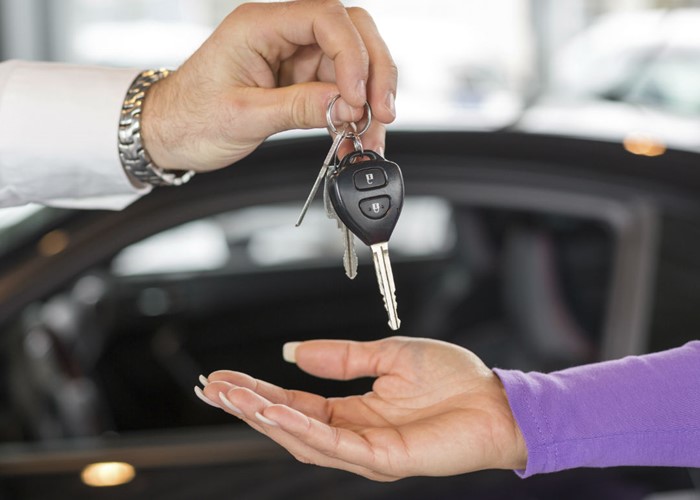
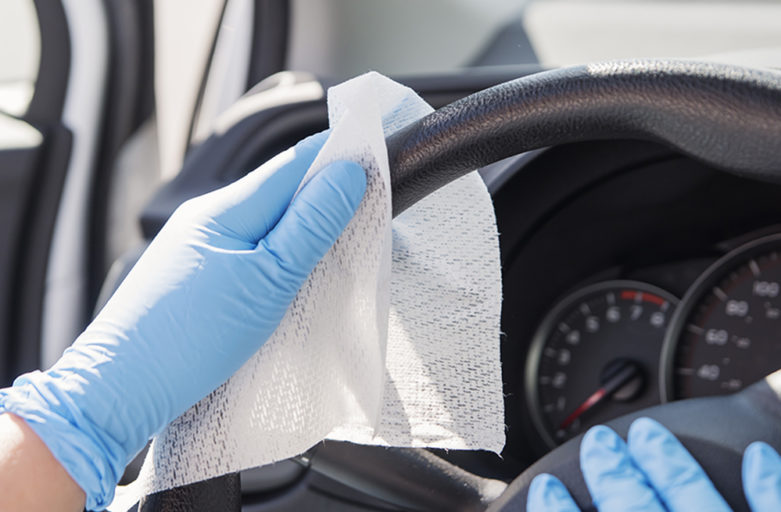
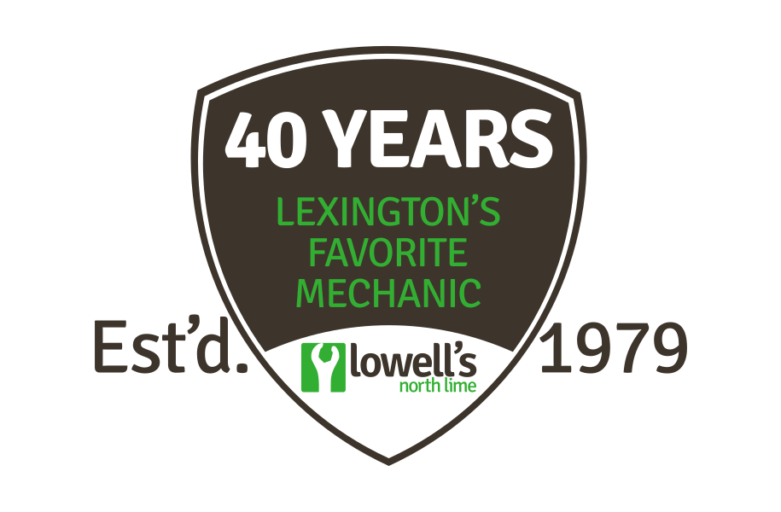
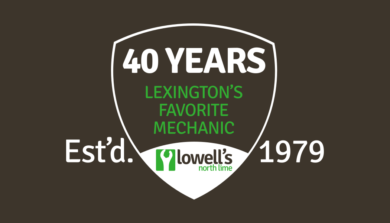 As part of our 40th anniversary in October, we thought it would be nice to take a look back at part of our history. Lowell wrote the following retrospective in 2008 – mere months before I bought
As part of our 40th anniversary in October, we thought it would be nice to take a look back at part of our history. Lowell wrote the following retrospective in 2008 – mere months before I bought 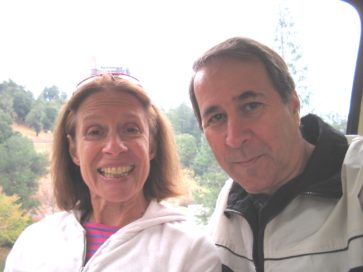 I have always been interested in business and while working at Muncie I started to buy old cars, fix them up and resell them. This had been going pretty well and was bringing in a little extra income. Our children were one- and five-years-old and we had just purchased our first home, incurring a sizeable mortgage payment.
I have always been interested in business and while working at Muncie I started to buy old cars, fix them up and resell them. This had been going pretty well and was bringing in a little extra income. Our children were one- and five-years-old and we had just purchased our first home, incurring a sizeable mortgage payment.




 We know that getting your car serviced isn’t always convenient – you’ve got plenty to do, and waiting for a repair or arranging a ride can be a hassle.
We know that getting your car serviced isn’t always convenient – you’ve got plenty to do, and waiting for a repair or arranging a ride can be a hassle.
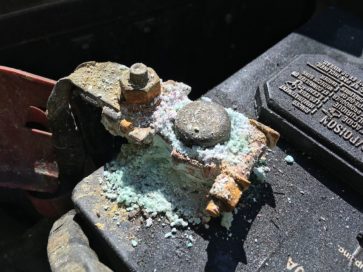 As your battery ages, it is a good idea to have it checked a few times a year to ensure that it is putting out the appropriate level of power. Have the battery terminals cleaned and battery cable ends replaced if you see excessive corrosion around the battery.
As your battery ages, it is a good idea to have it checked a few times a year to ensure that it is putting out the appropriate level of power. Have the battery terminals cleaned and battery cable ends replaced if you see excessive corrosion around the battery.